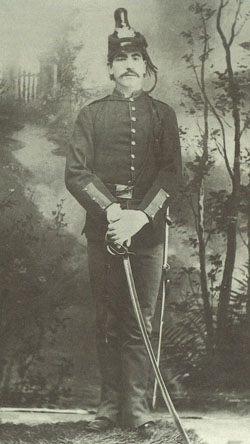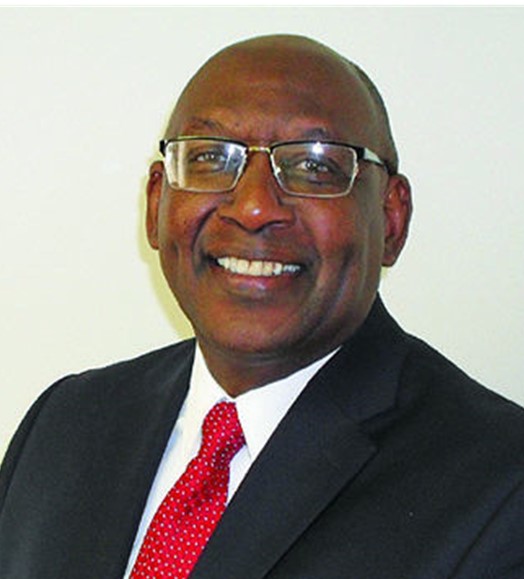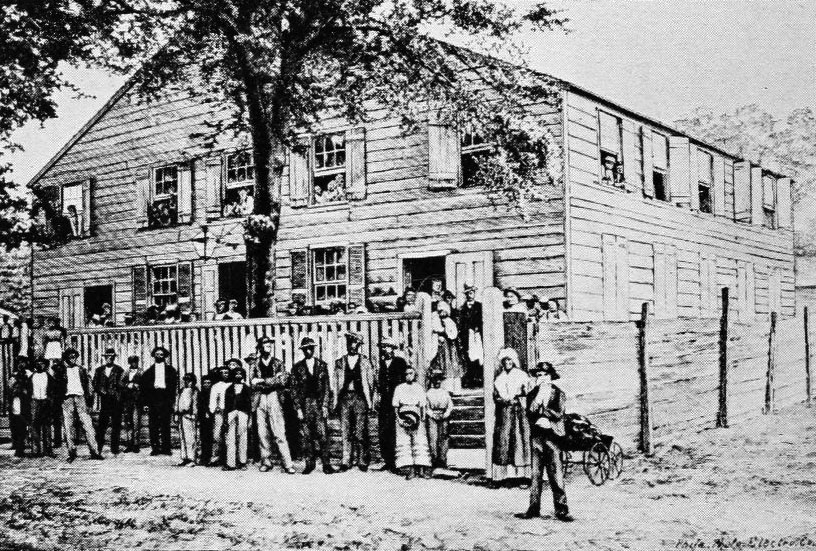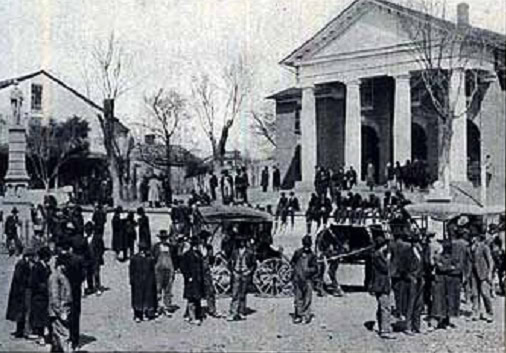Born in South Carolina bondage in 1849, Edward “Sancho” Mazique served in the Tenth Cavalry from 1875 to 1880 and lived long enough to be involved in a car accident a century later just a few blocks from Fort Concho where he served his enlistment.
At the time of his death in 1951, Mazique was believed to be the last Buffalo Soldier to have served with the Tenth Cavalry at Fort Concho and the oldest citizen of San Angelo, Texas, where he spent the majority of his life.
Two years after his June 10, 1849, birth in Columbia, South Carolina, Mazique (variously spelled “Mozique”), his mother and six siblings were taken to Spartanburg, South Carolina where he remained until emancipation in 1865. The family returned to Columbia later that year where Mazique at twenty-six, enlisted in the U.S. Army in 1875.
The U.S. Army sent him to Austin, Texas, where joined Troop E of the Tenth Cavalry under the command of Colonel Benjamin Grierson for the long, dusty ride to Fort Concho. Assigned to the headquarters detachment, Mazique served out his five-year enlistment as a maintenance man, using his skills as a carpenter and mechanic, and earning $10.60 a month, more than the ordinary enlisted man, because of his skills. He also played in the Tenth Cavalry band led by bandmaster Lt. Robert Smither.
Serving with the headquarters detachment, Mazique never saw combat but became acquainted with Colonel Grierson and his family, providing game he had hunted for Mrs. Grierson and, sadly, building the coffin for the Grierson’s young daughter Edith who died at the fort from typhoid fever in 1878. Mazique was discharged from the U.S. Army on February 24, 1880.
When his enlistment ended, Mazique put his carpentry skills to work in the burgeoning San Angelo community, helping construct several of the town’s early buildings, including the Concho Hotel. When construction work dried up, he moved to El Paso and worked in a restaurant near the border as a waiter, earning $10 a week and three times that much in tips while learning the art of cooking.
Mazique then moved to Dallas where he continued working as a cook in restaurants from 1891 to 1892, then San Antonio and finally Houston where he hired on at Dumler’s Restaurant, working there from 1894 to 1895. After that, 46-year-old Mazique returned to San Angelo where he spent the remainder of his life.
Back in San Angelo, Mazique worked as a cook on area ranches and married Alice Johnson, a woman twenty-seven years younger than him. They shared a son. His final job was on the Sugg Ranch, where he retired as a cook in 1931 so he could tend to his ailing wife, Alice, who preceded him in death in 1948.
Asked on his 100th birthday the secret of his longevity, he told a local newspaper reporter he “always made it a practice of going to bed early, getting up early and using plain common sense in the matter of life.”
Mazique lived sixteen months after the minor car accident that skinned his nose, and died April 20, 1951, two months short of his 102nd birthday. He was buried in San Angelo’s Fairmount Cemetery.




















